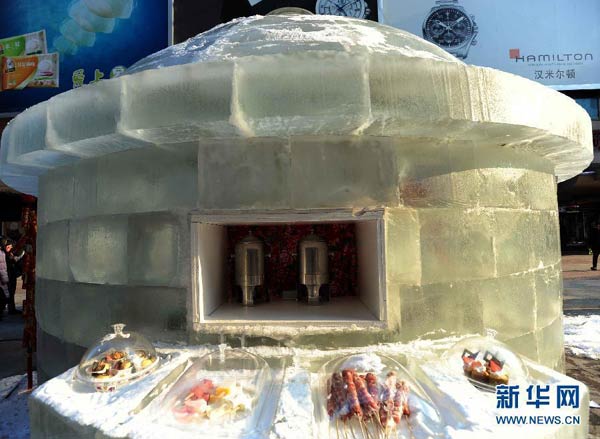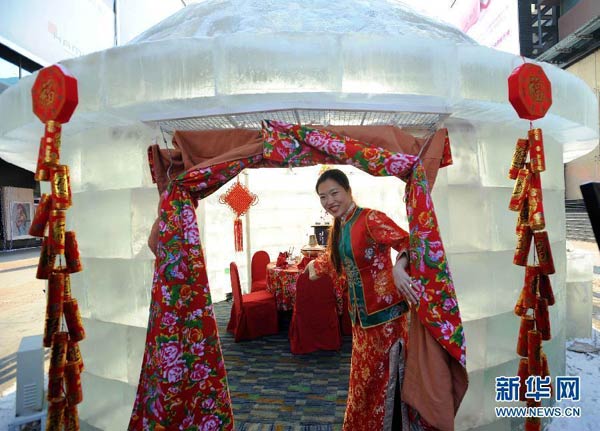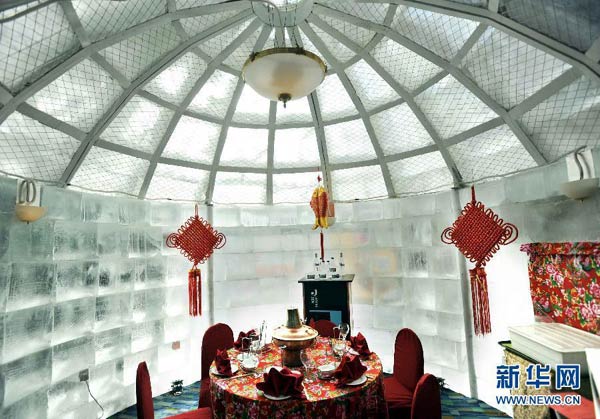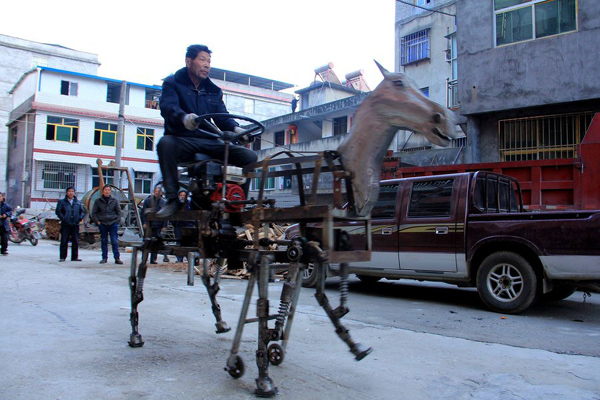China’s beautiful snow scenes
发帖者 ADuu | 1/26/2015 04:26:00 AM | china, Chinese, Photography, snow | 0 评论 »WOW...Congratulations!!! Li Na is expecting her first baby
发帖者 ADuu | 1/20/2015 05:48:00 AM | Baby, Chinese, Li na, sports, Tennis | 0 评论 »
The retired dual Grand Slam winner announced her pregnancy at Rod Laver Arena, where she claimed the title a year ago, during a ceremony ahead of the night session on Monday's opening day of the tournament.
"This summer, Jiang Shan and I expect our first child," Li said, joking that her husband had got her pregnant quickly, “he just made one ace.”
[Read more]
(via)
Mechanical Horse on Street
发帖者 ADuu | 1/20/2015 02:23:00 AM | china, Chinese, home, Horseback, news | 0 评论 »Su Daocheng, a retired worker and invention enthusiast, created a 1.5-meter-tall, 2-meter-long and 250 kg mechanical horse by using a kart engine and some chains and irons to imitate a famous but lost invention.
"Muniuliuma", a freight transport vehicle recorded in history, was believed to have been invented by Zhuge Liang, the prime minister of Shu Kingdom in the Three Kingdoms period (AD220-280). It is said that the invention transported army provisions on rugged roads without consuming energy and costing much labor.
Unlike "Muniuliuma", the mechanical horse Su invented needs oil as fuel but it can be as useful as a meal-free "farm cattle".
(via)




(pictrue from huaxia.)
During the New Year Festival season the following taboos apply
发帖者 ADuu | 1/14/2015 03:40:00 AM | chinese New Year | 0 评论 »During the New Year Festival season (from the 1st to 15th of the Lunar New Year) the following taboos apply:
1. The cry of a child is believed to bring bad luck to the family, so parents do their best to keep children from crying by whatever means possible.
2. Breaking tools or other equipment during this period is associated with a loss of wealth for the coming year; therefore tradesmen and business people in general take great precautions to prevent it.
3. A visit to the hospital during this period is believed to bring illness to the person in question for the duration of coming year; therefore visits to the hospital are avoided, except in cases of extreme emergency.
4. Theft: Do not let other people take objects, including money, from your pocket during the Spring Festival, and take care not to have your pocket picked, as this is believed to portend your whole wealth in the coming year being stolen.
5. Debt: Money should not be lent on New Year’s Day, and all debts have to be paid by New Year’s Eve, and, if someone who owes you money, do not go to his or her home to demand it. Anyone who does so it is said will be unlucky all the year.
6. The rice jar should not be allowed to become empty. This causes grave anxiety, as the cessation of cooking during the New Year period is an ill omen.
7. Damaged clothes: Do not wear new clothes that are damaged. If kids especially wear such clothes in the first lunar month, it is said to bring bad luck.
8. No killing. Killing in the Spring Festival should be avoided as blood is considered an ill omen, which will cause misfortunes such as a knife wound, or a bloody disaster.
9. Do not wear white or black clothes as these two colors are associated with mourning traditionally.
10. Welcoming the New Year: According to tradition, people must stay up late on New Year’s Eve to welcome the New Year, and then to let off fire crackers and fireworks to scare off inauspicious spirits and Nian, the New Year monster.
11. Hair must not be washed on the first day of the lunar year. In Chinese language, hair (发) has the same pronunciation (and indeed is the same character) as fa in facai (发财), which means ’to become wealthy’. Therefore, it is seen as not a good thing to “wash one’s fortune away” at the beginning of the New Year.
(via bigear)




























